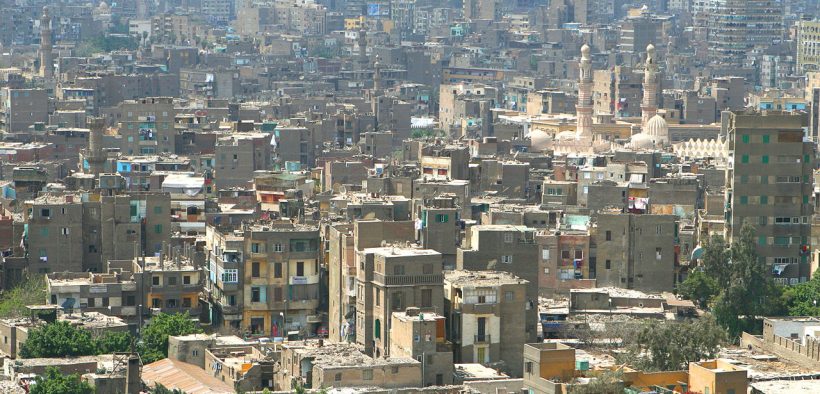A Car Blast in Cairo Causes Dozens of Deaths and Injuries

“The car was going in the wrong direction when it collided with seven cars, parking in front of the NIC. The collision caused the car to detonate and led to a huge explosion that left 20 people dead and dozens of others injured.”
At least 20 people have been killed and 47 others injured in Cairo early Monday morning after a car collided with other vehicles parked outside of the National Institute for Cancer in the Manial suburb of Cairo on the Nile River.
Egyptian Health Ministry spokesman, Khaled Megahed, said in a press conference that the majority of those wounded are in stable condition, except three of them, who remain in the Intensive Care Unit of a nearby local hospital.
Megahed added that more than 30 cancer patients, being treated at the National Institute for Cancer, have been temporarily transferred to nearby local hospitals for follow-up.
In the meantime, the health ministry declared a state of emergency across all Cairo hospitals right after the incident.
The Deadliest in a Few Months
The incident is the deadliest in the past few months when a roadside bomb caused a tourist bus to explode in May, leaving 16 people injured.
According to a statement by the Egyptian interior ministry, the car that caused the blast carried explosives and was apparently driving somewhere else for an attack or transferring the explosives for a future terrorist attack.
“The car was going in the wrong direction when it collided with seven cars, parking in front of the NIC. The collision caused the car to detonate and led to a huge explosion that left 20 people dead and dozens of others injured,” an interior ministry statement read.
Islamic Brotherhood Accused
The statement held the Hasm Islamist group, an offshoot of the outlawed Islamic Brotherhood, responsible for the incident and vowed to uncover perpetrators. One suspect was reportedly arrested, hours after the blast.
Reacting to the incident, Egyptian President, Abdel-Fattah El-Sisi, said on Facebook and Twitter that he sends his deep condolences to the families of the victims. El-Sisi added that his country would continue the fight against terrorism.
The Egyptian government ordered all concerned bodies to provide the needed support and assistance to the victims’ families.
Concerns about Terrorism
Egyptians believe that the recent blast is a worrying sign that the terrorist attacks have spilled over from Northern Sinai into other parts of the country at a time when tourism was recovering.
Shahira Amin, an independent journalist, based in Cairo, told Citizen Truth via a Facebook message “The recent suspension of British Airways and travel alerts issued by some western governments may have been the result of information gathered by the intelligence of those countries of an imminent attack”
Root Causes of Egyptian Attacks
Since October 2013 the Egyptian Sinai Peninsula has lived with unprecedented waves of terror attacks, carried out by Islamist armed groups mainly against Egyptian army and security forces in the region.
The terrorist attacks there began after Egypt’s military toppled the Islamic Brotherhood-linked late Egyptian president, Mohamad Morsi, during large-scale mass protests, known as the June 30 revolution.
Over the past six years some terror attacks have been reported in some Egyptian cities, including Cairo and Alexandria. The majority of those attacks have hit churches and left dozens of Egyptians dead.


![Egyptian Whistleblower, Mohamed Ali, Announces Movement to Oust Sisi 1 Film producer and real-estate investor Mohamed Ali Abdel Khaleq at a press conference in London organised by Egypt Watch on 20 November 2019 [Middle East Monitor]](https://citizentruth.org/wp-content/uploads/2019/11/1-4-183x96.jpg)


![Egyptian Whistleblower, Mohamed Ali, Announces Movement to Oust Sisi 5 Film producer and real-estate investor Mohamed Ali Abdel Khaleq at a press conference in London organised by Egypt Watch on 20 November 2019 [Middle East Monitor]](https://citizentruth.org/wp-content/uploads/2019/11/1-4-80x80.jpg)








From the article:
“Since October 2013 the Egyptian Sinai Peninsula has lived with unprecedented waves of terror attacks, carried out by Islamist armed groups mainly against Egyptian army and security forces in the region.
“The terrorist attacks there began after Egypt’s military toppled the Islamic Brotherhood-linked late Egyptian president, Mohamad Morsi, during large-scale mass protests, known as the June 30 revolution.”
This makes a clear connection between “terrorists” and the Brotherhood of Muslims, who also have burned down numerous Coptic churches in Egypt and committed other violent crimes against Copts.
The question becomes, what are we to think of a terrorist organization if it is democratically elected to government? I conclude that putative “democracy” is not an end in itself. I think that the idea of a truly beneficent democracy precludes a union of state and religion (good luck in pursuing that).
(I do not imply endorsement of the military government, or their methods.)